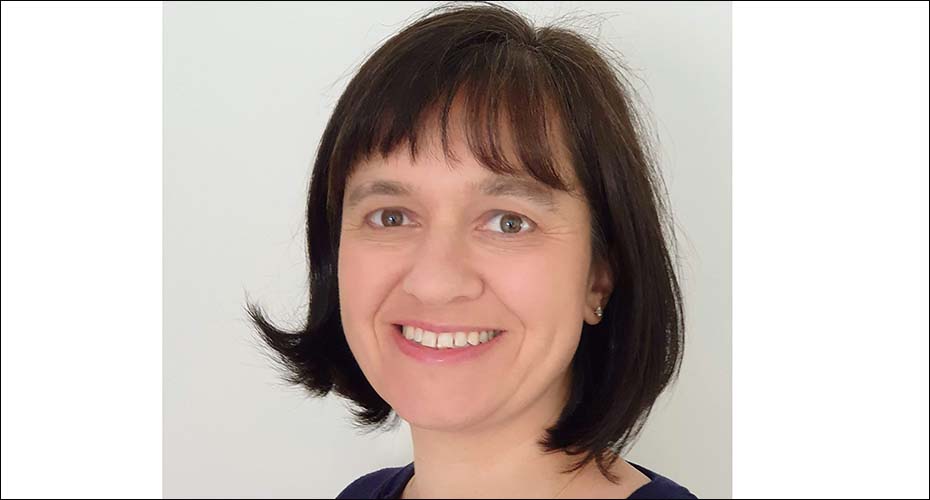Masters applications for 2023 entry are now closed.
Applications for September 2024 will open on Monday 25 September. Applications are now open for programmes with a January 2024 start. View our programmes »
Overview
- This course aims to challenge your thinking and help you to become the best health care leader that you can be, refining your communication skills, developing your ability to analyse and evaluate and helping you become a compassionate, inclusive and effective leader of the future.
- Unique selection of Future Health modules with a focus on the leadership and innovation skills required to develop digitally-integrated, sustainable and equitable care systems
- Develop the knowledge and skills to be a compassionate, inclusive and effective leader in UK and global health care systems. We’ll challenge you to consider offering solutions alone and in collaboration with other, supporting your development as a leader.
- You will be taught by experienced lecturer-practitioners to help you to translate research-based evidence into healthcare leadership practice
- Benefit from our flexible study options – study full or part time, with a variety of optional modules to complement your career needs.
Top 10 in the UK for our world-leading and internationally excellent Clinical Medicine research
Our Public Health research is 11th in the UK for Research Power
Major capital investment in new buildings and state-of-the-art facilities
Entry requirements
Normally a minimum 2.2 Honours degree (or equivalent) in a relevant discipline in addition to two years minimum of working as a Healthcare Professional. Relevant clinical or professional experience may be taken into consideration as evidence of degree equivalency. A personal statement, detailing your reasons for seeking to undertake this subject, will be required.
Please visit our entry requirements section for equivalencies from your country and further information on English language requirements.
Please visit our international equivalency pages to enable you to see if your existing academic qualifications meet our entry requirements.
International students are normally subject to visa regulations which prevent part-time study. It is recommended that international students apply for the level of the final award you intend to complete i.e. PGCert, PGDip or Masters, due to the associated cost and requirements for a Tier 4 student Visa.
Accreditation of prior learning for Masters courses in Healthcare and Medicine
Accreditation of Prior Learning (APL) is a process whereby students, who have already gained relevant skills and knowledge prior to the start of their course, may be granted a partial credit exemption from their programme instead of unnecessarily repeating work. Find out more about APL.
Entry requirements for international students
Please visit our entry requirements section for equivalencies from your country and further information on English language requirements.
Read more
Entry requirements for international students
English language requirements
International students need to show they have the required level of English language to study this course. The required test scores for this course fall under Profile B2. Please visit our English language requirements page to view the required test scores and equivalencies from your country.
Course content
Our Healthcare Leadership and Management programme is suitable for all aspiring or established leaders in any health-related discipline which includes nurses, allied healthcare professionals, commissioners, managers and doctors of any speciality including training grades, GPs and consultants early in their leadership journey.
This course aims to challenge your thinking and help you to become the best health care leader that you can be. We will support your development as a leader through engagement with both core and advanced concepts in leadership and change focusing on the delivery of healthcare at team and system level.
Compulsory modules include modules around leadership, management and leading change in healthcare.
On our MSc programme you’ll also choose from a range of optional modules covering systems and strategies of healthcare leadership, the application of data in healthcare, and challenges that you may find yourself facing in delivering medical care in extreme environments.
Programme structure
This MSc course can be studied on a full time basis over one year or over two or three years (part time), which may suit applicants who are already working full time. The programme is divided into units of study called ‘modules’ which are assigned a number of ‘credits’. To gain a Masters qualification, you will need to complete 180 credits at level seven. The credit rating of a module is proportional to the total workload, with one credit being nominally equivalent to 10 hours of work, a 15 credit module being equivalent to 150 hours of work and a full Masters degree being equivalent to approximately 1,800 hours of work.
It is also possible to exit with a PGCert after completing 60 credits of taught modules. The list of modules below shows which are compulsory.
The PgCert must be completed within one year. Intercalators are able to complete the MSc in one year.
Contact days
View the draft timetable for Healthcare Leardership and Management 2024-25
Please note: this timetable is draft and subject to change
The last contact day and assessment deadline for the programme will be earlier than the actual end date of your registration with the University, to allow a period of time at the end of your active studies for further support and mitigation, if needed
Modules
The modules we outline here provide examples of what you can expect to learn on this degree course based on recent academic teaching. The precise modules available to you in future years may vary depending on staff availability and research interests, new topics of study, timetabling and student demand.
Fees
2024/25 entry
UK fees per year:
Fees are subject to an annual increment each academic year.
- MSc: £12,700 full-time 1 year, £6,350pa part-time (2 years), £4,250pa part-time (3 years)
- PgDip: £4,250 pa (2 years)
- PG Cert: £4,250pa (1 year)
- Fees per 15-credit module: £1,200
International fees per year:
- MSc £29,700 full-time 1 year, £14,850pa part-time (2 years)
- PgDip: £9,900pa (2 years)
- PG Cert: £9,900pa (1 year)
- Fees per 15-credit module: £2,700
Fee information
Fees can normally be paid by two termly instalments and may be paid online. You will also be required to pay a tuition fee deposit to secure your offer of a place, unless you qualify for exemption. For further information about paying fees see our Student Fees pages.
Scholarships
We invest heavily in scholarships for talented prospective Masters students. This includes over £5 million in scholarships for international students, such as our Global Excellence Scholarships*.
For more information on scholarships, please visit our scholarships and bursaries page.
*Selected programmes only. Please see the Terms and Conditions for each scheme for further details.
Teaching and research
Our purpose is to deliver transformative education that will help tackle health challenges of national and global importance.
Teaching
This programme is taught using a blended approach to learning of lectures, classroom discussion, bespoke tutorials and practical exercises, supported by on-line resources accessed via the University of Exeter’s electronic learning environment (ELE).
Throughout this programme, we will provide you with a safe ‘practitioner researcher’ led environment of learning for you to share your ideas, perspectives and current experiences in response to realistic scenarios.
Research
Masters students conduct an Independent Research project into an area of their own choosing that is relevant to their professional practice.
Learning
The programme adopts a blended learning approach, combining campus-based teaching with high quality online resources for guided independent study. Students on the programme are practising health care professionals, managers or leaders. The course enables students to apply leadership and management theory to the real world challenges they face in the course of their work in health/social care and related industries.
The course does not include internships or placements in health care settings.
Assessment
Each module will include both formative and summative elements. Formative assessment will involve opportunities for discussion and feedback from peers and tutors. The summative assessment element for each module will provide students with the opportunity to demonstrate achievement of the intended learning outcomes. Elements of assessment will include:
- Development of Knowledge and Understanding
- Cognitive and Intellectual skills
- Key/Transferable Skills
Facilities
This programme is based at the St Luke’s campus in Exeter, just a 15 minute walk from the city centre and just over a mile away from the Streatham Campus. The campus is close to the Royal Devon and Exeter Hospital and RILD building, which is home to the NHS funded Exeter Health Library. Students have studied at St Luke’s campus for over 150 years and the campus enjoys a vibrant atmosphere set around the lawns of the quadrangle.
Facilities at St Luke’s campus include:
Read more

Sarah Bradley
Senior Lecturer

Rob Bethune

Alistair Hellewell
Senior Lecturer

Dr Melinda Martin-Khan
Lecturer in healthcare leadership, management and innovation
Sarah Bradley
Senior Lecturer
Sarah is module lead for a number of modules on the Masters in Clinical Education and Masters in Advanced Clinical Practice. She is also programme lead for the Masters in Healthcare Leadership and Management.
Previously, as Senior Clinical Skills Tutor for the Medicine programme, she had responsibility for a range of Clinical and Communication Skills teaching and assessment. She has 18 years’ experience as a medical educator and has a particular interest in clinical communication, skill development, assessment of clinical competence and curriculum design and evaluation.
Her research interest is in qualitative assessment methods and she is currently working towards a doctorate.
Sarah is a registered nurse and prior to working in medical education worked for the NHS specialising in Coronary Care and Research Nursing.
Contact Sarah Bradley to find out more about the academic content of the programme.
For all other questions about the programme, including admission enquiries, start dates and fees, please complete the online enquiry form.
Profile page
Rob Bethune
Rob Bethune is the module lead for the Leading Change in Health Services module.
Rob is a Colo-Rectal Consultant Surgeon at the Royal Devon and Exeter NHS Foundation Trust. He is primarily a laparoscopic bowel cancer surgeon as well as dealing with the surgical side of inflammatory bowel disease.
He has had a significant role in improving the delivery of health care services. After spending a year as a surgeon in a rural mission hospital in Zambia he took time out of his surgical training to work as a manager at the South West Strategic Health Authority. During this year he worked on a 17 hospital quality improvement and safety collaborative improving the standards of peri-operative care. He continues this role with the South West Academic Health Science Network (AHSN), where he set up a region wide quality improvement and patient safety collaborative and continues to support this as a clinical advisor.
He led a NIHR funded research programme to evaluate the implementation of a series of patient safety collaboratives across the English NHS. He has published widely on patient safety, human factors and quality improvement.
Su is an experienced educator in the fields of healthcare improvement, patient safety and healthcare management, leadership & innovation. Originally a molecular geneticist, she has worked in engineering, the NHS, and has been teaching postgraduate students in the South West since 2005.
Alistair Hellewell
Senior Lecturer
Alistair is a member of the Healthcare Leadership and Management MSc team and lead for the new module Future Health: Reimaging Systems.
Alistair is a consultant anaesthetist working in the NHS with a special interest in anaesthesia for ENT, transfer medicine, non-technical skills and leadership. He has been actively involved in medical education throughout his career working locally, regionally and nationally. He is a co-lead for the Simulation Unplugged course at the Royal College of Anaesthetists and faculty member of the Anaethetists as Educators portfolio of courses.
In 2015 Alistair founded the Philosophical Breakfast Club, a cross industry collaborative learning organisation and platform that creates connections through conferences and events to improve outcomes in safety critical industries.
Dr Melinda Martin-Khan
Lecturer in healthcare leadership, management and innovation
Melinda is a lecturer in healthcare leadership, management and innovation. Dr. Martin-Khan also holds academic research positions as a Senior Research Fellow at the Faculty of Medicine, The University of Queensland, Australia and Adjunct Professor at the School of Nursing, University of Northern British Columbia, Canada. She provides global teaching and research mentoring, drawing on experience and qualifications in health science and medicine, telehealth, business/finance, management, and statistics.
Her post-doctoral research interests are in quality of care, patient and public collaborative research, and vulnerable populations including older adults and people with dementia.
Melinda is a health scientist and prior to working in health services and medical research worked as a senior healthcare administrator in Australia with responsibilities as a Chief Executive in aged care.
Careers
Who is this course for?
The course is for both aspiring and established health care leaders. You should be a qualified health professional, or have prior experience of management in health care or related industries. Previous students have included: doctors (from specialty trainees to consultants early in their leadership journey), dentists, nurses and midwives, allied health professionals, managers, and commissioners.
Employer-valued skills this course develops
We’ll provide you with the time, space, and support you need to become a compassionate, inclusive and effective leader of the future. You will refine your written and verbal communication skills through the examination of theory and its use in practice. You will learn how to analyse, synthesise, evaluate and reflect on the translation of research-based evidence into healthcare practice
Career paths (graduate destinations)
Many of our students are already in employment in health care and related sectors. Graduates of the Healthcare leadership and management programmes progress in their existing clinical and managerial careers, equipped with the knowledge, skills and behaviours required to lead and manage in demanding roles both within and across organisations.
Careers support
This programme will enhance your opportunity to take on more demanding roles or management roles within healthcare.
All University of Exeter students have access to Career Zone, which gives access to a wealth of business contacts, support and training as well as the opportunity to meet potential employers at our regular Careers Fairs.
Read more
Studying a PgCert in Healthcare Leadership and Management has broadened my horizons and career prospects. I've been impressed by the quality of teaching, the support I've received and have enjoyed the course content, which is enriched by field experts as guest speakers.
I've had a truly engaging experience and have equally learned a great deal from my fellow cohort members. I'd recommend the course to anybody looking to enhance their leadership and management skills.
Read more from Laura Winzer
Laura Winzer
PgCert in Healthcare Leadership and Management
I undertook the PG Cert part-time, alongside my clinical work. It was very well organised and easy to plan around work. The modules were inspiring and changed my practice.
In fact, I enjoyed it so much that I then undertook the Diploma. The knowledge definitely made me a better and stronger candidate for consultant applications. I wholeheartedly recommend this programme to those considering it.
Read more from Clare Attwood
Clare Attwood
Consultant Anaesthetist
.jpg)
















